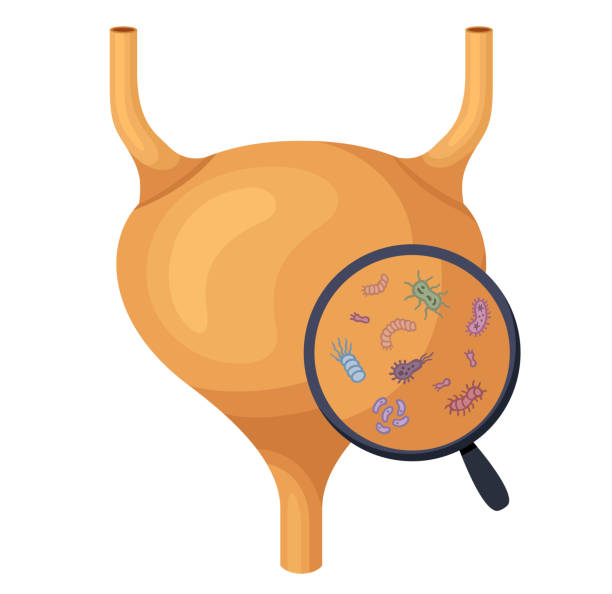Health Conditions
Learn How Long UTIs Typically Last, With And Without Antibiotics
Understanding the length of a urinary tract infection (UTI) and how it progresses with or without antibiotics is critical for optimal management and treatment. Whether you’re dealing with the discomfort of a UTI or looking for information to help a loved one, it’s critical to understand the potential timescales in both situations. In this article, we will look at the complex dynamics of UTIs, including how they progress with and without antibiotic treatment. By casting light on the expected durations and consequences, we hope to provide readers with the information they need to make informed decisions regarding their health and well-being when dealing with this frequent yet irritating ailment.

Understanding UTIs
UTIs (Urinary Tract Infections) are common bacterial infections of the urinary tract. They can affect any portion of the urinary system, including the kidneys, bladder, ureters, and urethra. UTIs are more common in women than in males, and sexual activity increases the risk of having one.
Causes and Risk Factors
Bacteria, such as E. coli, that live in the gastrointestinal system are the most common cause of UTIs. When germs enter the urinary tract, it can lead to an infection. Other risk factors for UTIs are:
- A compromised immune system.
- Urinary tract abnormalities or obstructions
- Use of specific types of birth control, such as spermicides or diaphragms
- Menopause
- Diabetes
Symptoms and Diagnosis
The symptoms of a UTI differ depending on which portion of the urinary system is involved. Common symptoms include:
- Urinary pain or burn
- Frequent urination
- Urge to urinate.
- Urine that is cloudy or has a strong smell
- Blood in the Urine
- Pain in the lower abdomen or back
A doctor may perform a physical exam and ask about symptoms to determine if you have a UTI. They may also conduct a urine test to detect bacteria or other indicators of infection.
Uncomplicated vs. Complicated UTI
UTIs can be characterized as simple or complex. Uncomplicated UTIs are minor infections that affect healthy people with normal urinary tracts. They usually affect only the bladder and can be treated with a short course of antibiotics.
Complicated UTIs are infections that arise in people who have atypical urinary tracts or weak immune systems. They can cause kidney damage or other urinary tract issues, necessitating more extensive antibiotic treatment.
In conclusion, UTIs are a common bacterial infection of the urinary system. They can be caused by germs and carry a number of risks. Symptoms vary depending on which portion of the urinary system is affected, and the diagnosis is usually determined after a physical exam and a urine test. Uncomplicated UTIs can be treated with a short course of antibiotics, whereas complicated UTIs necessitate more intensive therapy.

Treatment and Medications
Antibiotics are frequently used to treat urinary tract infections (UTIs). The type of antibiotic used is determined by the microorganisms causing the infection as well as the patient’s health. In rare circumstances, a urine sample may be collected to determine the type of bacteria present, which can aid in therapy.
Antibiotic Options
Trimethoprim/sulfamethoxazole (Bactrim), fosfomycin, nitrofurantoin, and cephalexin are some of the most commonly prescribed antibiotics for UTI treatment. These antibiotics are typically used for three to seven days, depending on the severity of the infection.
It is critical to complete the entire course of antibiotics, even if symptoms improve before the medicine is done. Stopping medications too soon can result in antibiotic resistance, making subsequent infections more difficult to cure.
Alternative Treatments and Home Remedies
While antibiotics are the most effective treatment for UTIs, there are some other options and home cures that may help ease symptoms. Over-the-counter pain medicines like ibuprofen and acetaminophen can assist with fever and pain.
Some patients may benefit from using low-dose antibiotics for several months to prevent recurring UTIs. Probiotics, which aid in the maintenance of a healthy bacterial balance in the body, may also assist in avoiding UTIs.
When to See a Doctor
If the symptoms of a UTI last more than a few days, you should consult a doctor. In some situations, a UTI might result in more serious problems such as kidney infections or sepsis.
A healthcare provider can test a urine sample to detect the sort of bacteria present and then prescribe suitable medicines. It is critical to take antibiotics as prescribed and consult with a healthcare provider if symptoms do not improve within a few days.

Duration and Recovery
With Antibiotics
Antibiotics are commonly used to treat urinary tract infections (UTIs), and the duration of the illness is determined by the severity of the infection and the efficacy of the antibiotic. A common UTI might persist anywhere from a few days to a week with medication. To guarantee complete recovery and prevent the recurrence of infections, complete the entire course of antibiotics advised by your healthcare professional.
The symptoms of a UTI normally improve within a day or two of starting medication. Even if the symptoms have eased, it is critical to continue taking the medication for the remainder of the treatment period. Failure to finish the entire course of treatment may result in recurring infections and consequences.
Without Antibiotics
UTIs can sometimes resolve themselves without the need for medication. However, this is not encouraged because it can result in recurring infections and problems. An uncomplicated UTI can last seven to ten days without antibiotics, and 30 to 40 percent of women can recover from a UTI without using antibiotics.
It is vital to note that it is difficult to anticipate how long a UTI will last without medicines, let alone whether it will completely resolve. Many people find the symptoms too painful to wait and see.
Factors Affecting Duration
Several factors can influence the length of a UTI, including the infection’s severity, the occurrence of complications, and the patient’s general health. Recurrent infections can also result in prolonged healing times and require a more extensive course of therapy.
It is critical to seek medical attention if UTI symptoms last longer than a few days or if symptoms return after a full course of medication.

Prevention and Management
Lifestyle and Diet
Making simple lifestyle adjustments can help prevent UTIs. Drinking enough fluids, particularly water, can help remove bacteria from the urinary tract. Cranberry juice or supplements may also help prevent urinary tract infections by preventing bacteria from attaching to the bladder wall. Vitamin C pills may also aid by raising urine acidity, which inhibits bacterial growth.
Wearing loose clothing and avoiding tight pants or underwear can also assist in preventing UTIs. Women who use contraception or birth control should consult their doctor about other treatments if they have recurring UTIs. Menopause and urine incontinence can both increase the risk of UTIs, thus it is critical to managing both diseases to avoid them.
Monitoring and Follow-Up
If you have signs of a UTI, seek medical assistance right once. If not treated, UTIs can cause serious problems such as renal damage or sepsis. Your doctor may prescribe antibiotics to treat the infection, and it is critical to complete the entire course of medication as advised.
If you have recurrent UTIs, your doctor may recommend additional testing to establish the cause. In some circumstances, preventive antibiotics or other treatments may be recommended to avoid recurring UTIs. It is critical to follow up with your doctor as directed to check your condition and avoid consequences.
Conclusion
To summarize, the duration of a urinary tract infection (UTI) varies greatly depending on whether antibiotics are taken for therapy. While medications can typically provide immediate relief by addressing the underlying bacterial infection, it is crucial to note that UTIs can sometimes cure on their own without the need for antibiotics. Allowing a UTI to progress without antibiotics, on the other hand, may prolong discomfort and raise the risk of complications, especially in people who have specific risk factors or compromised immune systems. Finally, the decision to use antibiotics should be decided in cooperation with a healthcare practitioner, taking into account the severity of the symptoms, the risk of consequences, and the individual’s health history. Understanding the potential timelines and outcomes of UTIs with and without antibiotics allows individuals to take proactive efforts to successfully manage their condition and encourage prompt recovery.
Trusted Health, Wellness, and Medical advice for your well-being


